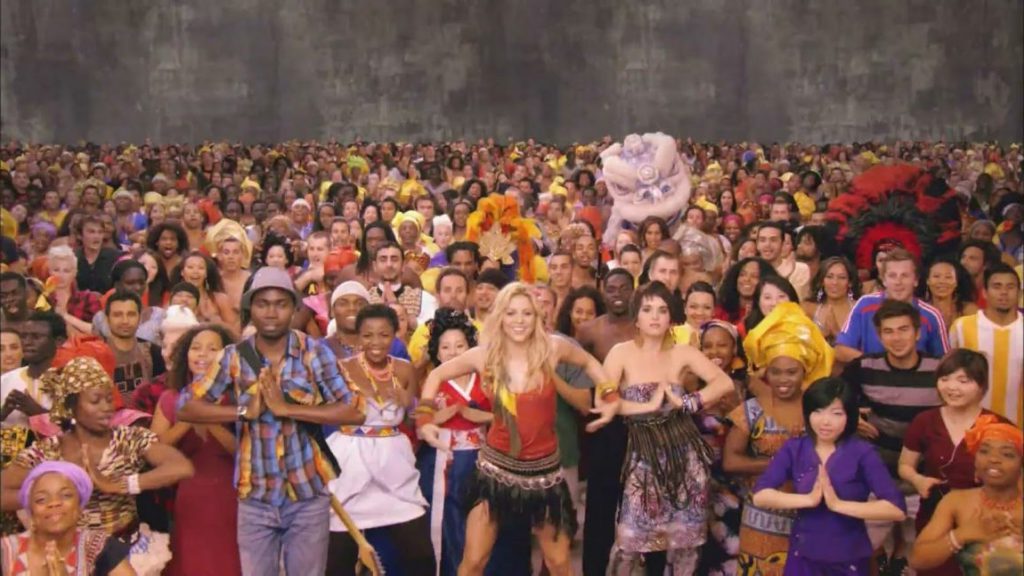Streets is Watching
Shakira should acknowledge "Waka Waka" is a rip off of a Cameroonian song. Everyone knows that. Also pay the original composers.

A still from the music video for Shakira's "Waka Waka."
Oh no she didn’t. Shakira gets asked about the origins of “Waka Waka” about 30 seconds into this press conference during the World Cup in South Africa. Seriously, who didn’t already know this song as “Zangalewa” when they heard its reincarnation as “Waka Waka”? The very first time I heard it, I was nine, spending one of many family vacations in the motherland. And I won’t even tell you how long ago that was. I shouldn’t have to anyway, since Chief Boima covered this months ago, and traced the song back to its origin in Cameroon.
But what’s all that to Shakira and FIFA? They are, after all, engaging in yet another tried and true pastime: undermining African peoples’ intellectual and artistic rights. In an excellent post on his blog, the Cameronian Dibussi Tande, writes about this history. Before he gets to “ZanHe tells the story of Solomon Popoli Linda, who in 1939 wrote the song “Mbube” and received 10 shillings (less than $US 2) for his efforts from his South African record company, Gallo Music. Most people know “Mbube” as “The Lion Sleeps Tonight.” The latter became a hit and tons of people made money off Linda’s composition without him or his family, receiving any royalties. Linda died penniless, writes Tande. “In 1995, ‘The Lion Sleeps Tonight’ earned an estimated $15 million just for its use in the movie Lion King – a movie which has since grossed about $800 million worldwide. Linda’s descendants sued Walt Disney for $1.5 million with the full backing of the South African government. Disney settled for an undisclosed sum just as the trial was about to begin.”
As for Shakira and “Waka Waka,” Tande writes that it is not any old song, but the anthem of the World Cup, arguably the world’s important and lucrative sports festival. “Not only do the Zangalewa deserve a check from Shakira and Sony each time the song is played, they are also entitled to royalties from all FIFA merchandise that will be tied to the song (video games, action figures, toys, ring tones, etc.).” He urged the Zangalewa, the Cameroonian originators of the song to seize the moment. “From a career perspective, this is the best time for Zangalewa … For example, having all of their albums and songs available on iTunes, releasing a Greatest Hits album along with their old videos.” Tande notes that their official website which is “under Construction.” Tande ends with a warning:
[A]rtists who still believe that they can use songs by African artists without authorization or without crediting them should realize that in this age of the Internet, they will be found out and exposed sooner rather than later.
As they say, streets is watching.
Sidenote: If you’ve got 11 minutes, here is a particularly ridiculous Al Jazeera interview in which she refers to “Zangalewa” as a “… Cameroonian chant.”



















